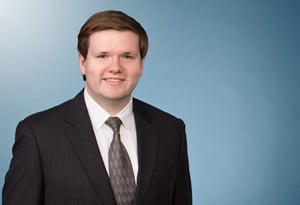California Supreme Court Declines to Adopt Federal De Minimis Rule for Wage Claims
Employers in California must compensate workers for all reasonably measurable time worked, according to a California Supreme Court ruling on July 26, 2018. A unanimous court held that the so-called “de minimis” rule applicable to the federal Fair Labor Standards Act, which holds that negligible amounts of time at the beginning and end of each shift need not be compensated, should not be applied to the California Labor Code and related wage orders.
Justice Liu, authoring the majority opinion in Troester v. Starbucks Corp., held that no California court had previously incorporated the de minimis rule into its precedents. Turning to the facts of the case, which alleged the employee worked between four and 10 minutes of uncompensated time each day, the court found “[a]n employer that requires its employees to work minutes off the clock on a regular basis or as a regular feature of the job may not evade the obligation to compensate the employee for that time by invoking the de minimis doctrine.”
The court was careful, however, to note that this ruling would not necessarily apply to all future cases seeking to invoke the de minimis exception: “We leave open whether there are wage claims involving employee activities that are so irregular or brief in duration that it would not be reasonable to require employers to compensate employees for the time spent on them.” Indeed, Justices Cuellar and Kruger both authored concurring opinions emphasizing this point, and noting that this ruling would not require employers to catalog “fractional seconds” for which tracking time would be “impractical and unreasonable.”
This ruling significantly “tightens the belt” of employers in California, requiring reasonably measurable time worked by employees be compensated. But how far this principle extends is unclear. For example, whether California would recognize a de minimis exception for short, inconsistent time increments remains unsettled, as the concurring opinions noted.
The material contained in this communication is informational, general in nature and does not constitute legal advice. The material contained in this communication should not be relied upon or used without consulting a lawyer to consider your specific circumstances. This communication was published on the date specified and may not include any changes in the topics, laws, rules or regulations covered. Receipt of this communication does not establish an attorney-client relationship. In some jurisdictions, this communication may be considered attorney advertising.


